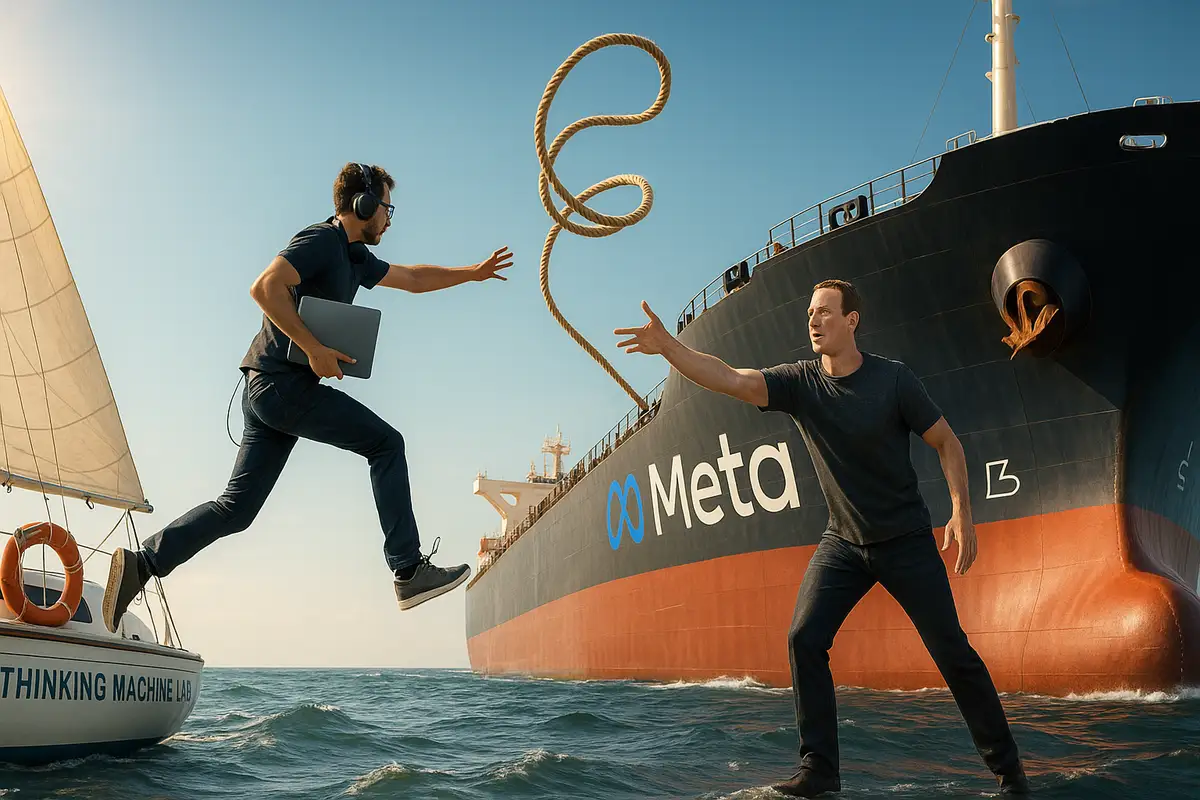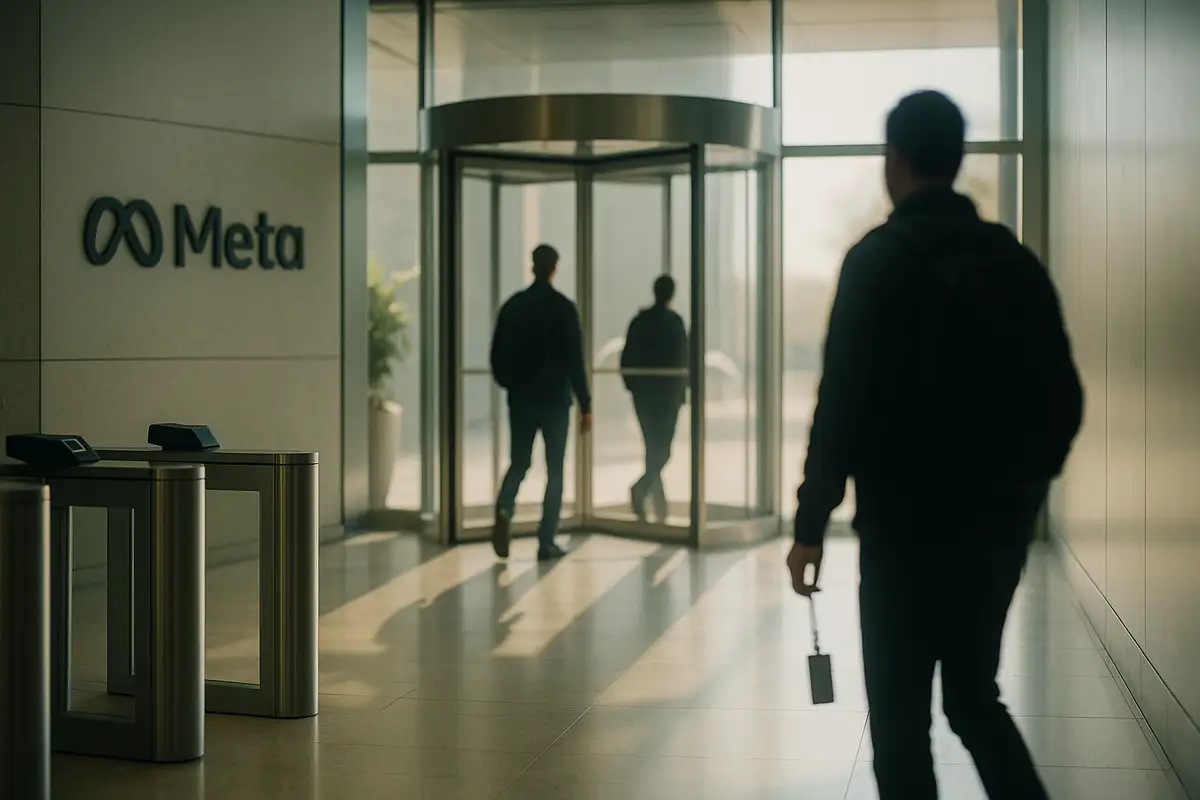Yann LeCun spent twelve years building Meta's AI research operation into one of the world's premier deep learning labs. Then Mark Zuckerberg hired a 28-year-old to be his boss. Now LeCun is leaving to start his own company, where venture capitalists will give him billions of dollars to pursue exactly the kind of decade-long theoretical research Meta just decided it couldn't afford.
LeCun, 65, is a Turing Award winner who pioneered convolutional neural networks and helped make modern computer vision possible. He now reports to Alexandr Wang. Wang founded Scale AI, a data labeling company. Zuckerberg paid $14.3 billion for a 49% stake in Scale and installed Wang as chief of Meta's new Superintelligence Labs. LeCun's Fundamental AI Research group got folded into Wang's operation.
In late October, Meta cut roughly 600 jobs from its AI division. FAIR took hits too.
What Meta told LeCun without quite saying it: your work isn't urgent enough.
The Breakdown
• Yann LeCun, Meta's AI chief for 12 years, now reports to 28-year-old Alexandr Wang and is leaving to start a world-models-focused AI startup
• Meta's Llama 4 flopped against competitors. Stock dropped 11-12% on Oct 30, erasing $215B after company raised 2025 capex guidance to $70-72B
• LeCun will raise billions from VCs for decade-long research Meta abandoned. Corporate labs dissolving as startups pursue architectural bets with patient capital
• Only 3 of 14 original Llama researchers remain at Meta. The pivot from research to rapid deployment hasn't fixed execution problems
The Execution Problem Nobody Wants to Discuss
Meta's pivot away from long-term research followed what the Financial Times calls the "botched release" of Llama 4. The model performed worse than Google's offerings. Worse than OpenAI's. Worse than Anthropic's. Meta AI, the consumer chatbot, claims roughly 1 billion monthly active users across Meta's apps, though the standalone app remains in low-millions daily active users territory.
Zuckerberg spent the past year throwing money at this. $100 million compensation packages to lure researchers from competitors. The results keep disappointing.
Wall Street noticed. Meta's shares fell roughly 11-12% on October 30, 2025, erasing approximately $215 billion in market value that day, after the company raised 2025 capex guidance to $70-72 billion and flagged a "notably larger" 2026. That's a remarkable outcome for a company where the CEO controls 62% of voting stock and explicitly structured the board to "focus on the long term." Even founder control has limits when you're burning that much cash on mediocre models.
Look at the internal reckoning. Of the 14 researchers listed on Meta's original Llama paper in 2023, three still work at the company. That's not normal attrition. FAIR produced the first Llama model, but subsequent versions came from different teams as Meta shifted resources toward groups Zuckerberg believed could ship faster. Publish or perish became ship or leave.
The Philosophical Divide That Matters
LeCun isn't leaving because he got demoted. He's leaving because he thinks Meta is pursuing the wrong technical path.
At an MIT symposium in late October, LeCun was characteristically blunt about large language models. "I've been not making friends in various corners of Silicon Valley, including at Meta, saying that within three to five years, this will be the dominant model for AI architectures, and nobody in their right mind would use LLMs of the type that we have today." He's called current models "dumber than a cat." They will never achieve human-level reasoning no matter how much compute you throw at them, he argues.
His alternative, world models, takes inspiration from how infants learn physics by observing the world rather than processing language. These systems would learn from video and spatial data to build internal representations of how physical reality works. LeCun has acknowledged this approach might require a decade of development before producing practical applications. Which makes it fundamentally incompatible with Meta's new strategy of rapid model releases to satisfy quarterly earnings pressure.
The technical disagreement matters more than the organizational drama. LeCun's work on convolutional neural networks made modern image recognition possible. When he says the entire industry is betting on the wrong architecture, that carries weight. Either Meta is correct that scaled-up LLMs will reach superintelligence, or LeCun is right that everyone is wasting billions on a dead end. Both cannot be true.
The Great VC Arbitrage
LeCun is reportedly in early talks to raise funding for his new startup. He will have no trouble whatsoever getting billions of dollars from top-tier venture firms to spend the next decade tinkering with world models.
This should seem backwards. Meta has $134 billion in annual revenue and $65 billion in cash. But it just told LeCun it can't support his long-term research because shareholders demand near-term returns. Venture capitalists, whose business model depends on generating returns for their own investors, will happily fund the exact same research with zero revenue requirements for years.
The apparent paradox resolves when you understand what venture capital is actually buying. Mira Murati left OpenAI in September 2024 and raised $2 billion at a $10-12 billion valuation in mid-2025 for Thinking Machines, which announced its first product, Tinker, a training API, in October 2025. Top AI researchers can name their price and timeline right now because the market believes fundamental breakthroughs in AI architecture will create trillions in value. The winners of the next phase don't need cash flow this quarter or even this year.
Meta can't make that bet anymore. It's already a $1.6 trillion company with AI infrastructure spending headed toward $70-72 billion in 2025 and larger still in 2026. Theoretical research that might pay off in 2035? That's a dollar not spent shipping models that work today. But a venture-backed startup with no revenue expectations and a ten-year horizon is exactly the vehicle for high-risk architectural research.
LeCun will get paid more to do purer research outside Meta than he did inside it. That's not a bug in the system. It's the entire point of the current AI funding environment.
What Meta's Crisis Reveals
Zuckerberg spent the summer hiring aggressively. Wang came in. So did Shengjia Zhao, a former OpenAI researcher who worked on ChatGPT, as chief scientist of the Superintelligence Lab. Multiple reports describe $100 million pay packages for individual researchers. This isn't normal Silicon Valley compensation even by current standards. It's panic spending.
A clear pattern emerged. Zuckerberg concluded Meta had fallen behind in the AI race. He responded by importing talent that worked on successful models at competitors, reorganizing around rapid deployment, and marginalizing the research group that had been pursuing longer-term bets. In May, vice president of AI research Joelle Pineau left for Canadian startup Cohere. Last month came the 600 job cuts from the AI research unit, aimed explicitly at eliminating bureaucracy and accelerating product releases.
But here's what Meta's crisis actually demonstrates. You can't buy your way to the frontier with talent alone. OpenAI, Google, and Anthropic aren't ahead because they have better researchers. They made earlier architectural choices that are currently winning. Meta had LeCun and FAIR since 2013, before most companies were thinking seriously about deep learning at scale. Research culture, substantial compute resources, institutional commitment. Llama 4 still flopped.
LeCun's world models taking too long to develop isn't the problem. Meta's current models not working well enough despite unlimited resources is the problem. Reorganizing away from research toward execution doesn't solve that. It just means you'll execute faster on approaches that aren't working.
The Pattern Beyond Meta
LeCun's departure fits into a broader dissolution of corporate AI research labs as institutions. Google Brain and DeepMind merged. Microsoft Research has been overshadowed by the company's OpenAI partnership. OpenAI itself, originally structured as a research nonprofit, pivoted to commercial deployment. FAIR, which LeCun built into a genuine intellectual community with academic values, just got gutted.
What's replacing them? Commercial product teams racing to ship models or well-funded startups pursuing specific architectural bets. The middle ground is vanishing. Corporate labs doing open-ended research on ten-year timeframes. That makes sense from a financial perspective. Research has positive externalities that benefit the whole field. Why should Meta fund work that helps OpenAI as much as it helps Meta?
Losing these institutions has consequences. Academic labs lack the compute resources for frontier research. Startups have their own investors to satisfy eventually. Big corporate labs were inefficient, slow, frequently mismanaged. But they also provided stable environments for research with genuinely uncertain payoffs. LeCun could work on world models at FAIR without immediate pressure to justify the approach. Now he'll need to convince VCs that this leads somewhere valuable within their fund lifecycles.
The venture firms will fund him. It's 2025 and AI researchers with Turing Awards can raise billions on a pitch. But five years from now? Ten years? At some point the music stops and everyone needs to show returns. We're outsourcing long-term AI research to a funding model built for exits within a decade. Maybe that works. Maybe we're setting up the next phase of AI development to hit a wall when patient capital runs out.
Why This Matters
For Meta shareholders: Spending headed toward $70-72 billion in 2025 with even larger outlays flagged for 2026, but the company is losing ground to competitors and shedding top research talent. The pivot to rapid deployment hasn't fixed the execution problems that led to Llama 4's poor reception.
For AI researchers: FAIR's dissolution signals that corporate research labs no longer provide stable environments for fundamental work. The new career path is corporate roles for near-term projects or VC-backed startups for long-term bets. Nothing in between.
For the AI industry: LeCun's departure crystallizes a key uncertainty. If LLM scaling hits limits and world models require a decade of development, the current architecture might represent a local maximum rather than a path to superintelligence. Meta is betting everything on scaling. LeCun is betting the opposite. That's not a disagreement about tactics. It's a fundamental fork in the road.
For venture capital: The market is funding decade-long theoretical research through startup vehicles that traditionally demand returns within fund lifecycles. This works brilliantly until it doesn't. When startups pursuing fundamental research need to return capital, the pressure to commercialize will resurface at different institutions.
For Mark Zuckerberg: Founder control was supposed to enable long-term thinking. But $215 billion in market value disappearing in a single day proved that even 62% voting control has practical limits. Meta now needs to ship models that work, not just spend aggressively. The reorganization has solved the research problem by eliminating research. It hasn't solved the execution problem that made the reorganization seem necessary.
❓ Frequently Asked Questions
Q: What exactly are "world models" and how do they differ from LLMs?
A: World models learn by watching video and spatial data to understand how physical reality works, similar to how infants learn physics by observation. LLMs learn from text and language patterns. LeCun argues world models will achieve human-level intelligence while LLMs cannot, regardless of scale. Development timeline: 10+ years before practical applications.
Q: Why did Zuckerberg specifically choose Alexandr Wang to lead Meta's AI efforts?
A: Wang founded Scale AI, which provides data labeling services essential for training AI models. Meta paid $14.3 billion for a 49% stake in Scale AI and installed Wang as chief of Superintelligence Labs in summer 2025. Wang represents execution and rapid deployment over theoretical research—the opposite of LeCun's approach.
Q: How much money is LeCun expected to raise for his startup?
A: While exact figures aren't public, comparable recent raises provide context: Mira Murati raised $2 billion at a $10-12 billion valuation for Thinking Machines in mid-2025. LeCun's Turing Award credentials and pioneering CNN work suggest he could command similar or larger amounts from top-tier VCs for world models research.
Q: What did FAIR actually accomplish during LeCun's 12 years leading it?
A: FAIR produced Meta's first Llama model in 2023, which became the foundation for Meta's open-source AI strategy. The lab published influential research in deep learning, computer vision, and natural language processing. However, subsequent Llama versions came from different teams, and FAIR's focus on long-term research increasingly conflicted with Meta's product needs.
Q: If Meta has $65 billion in cash, why can't it afford decade-long research?
A: Scale changes everything. Meta's $1.6 trillion market cap means shareholders expect returns proportional to that valuation. With $70-72 billion in 2025 AI spending and models underperforming competitors, Meta needs near-term wins to justify continued investment. A $2 billion bet is enormous for a VC fund but rounding error for Meta—yet carries different accountability.


















